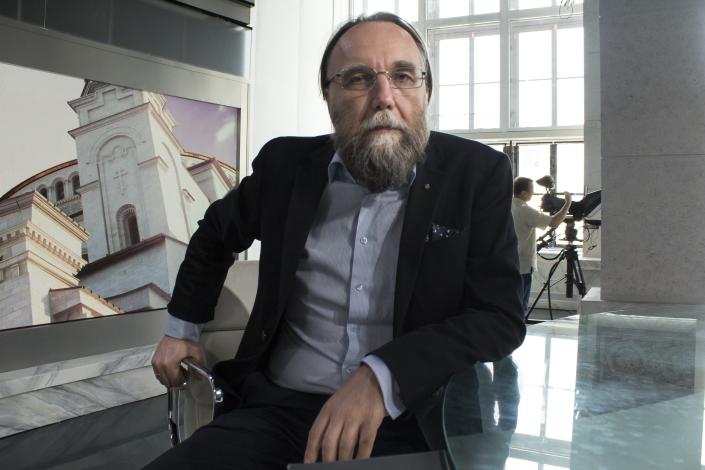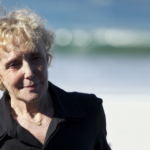WASHINGTON — The ultranationalist Russian philosopher Alexander Dugin, commonly referred to as “Putin’s Brain” for his influence within the Kremlin, said earlier this week that the Russian military retreat from Kyiv was a “temporary situation,” predicting that after a regrouping, a broader campaign across Ukraine could commence again.
Dugin made his comments to a Turkish newspaper; the interview was reported on by RIA Novosti, a Kremlin-controlled wire news service that has consistently amplified anti-Ukrainian rhetoric.
“The Russian army is currently fighting the sovereign powers that impose a unipolar world,” Dugin said, in reference to the alliance of pro-Ukraine allies led by the United States. “We cannot lose this war. Otherwise, the whole world will turn into a large fire.”
An eclectic thinker with a fondness for the occult, Dugin has published several books calling for a broader Slavic empire that would include Ukraine, as well as Moldova and Belarus.
Putin shares these expansionist views. In a lengthy 2021 article, “On the historical unity of Russians and Ukrainians,” he deployed remarkable historical revisionism to argue that Ukrainian nationhood was an aberration resulting from the collapse of the Soviet Union in 1991.
Since then, Ukraine has tried to orient itself away from its much larger neighbor and toward the West. Putin has seen that move as an affront, first trying to bring Ukraine back into the fold in 2014, when Russian forces and pro-Russian paramilitaries took over the Crimean peninsula, as well as two eastern border regions, Luhansk and Donetsk, with large Russian-speaking populations.
When the second invasion of Ukraine began in February, Russian forces moved toward Kyiv and other large cities, only to see their gains quickly reversed by a spirited Ukrainian resistance equipped with Western arms. Facing the unthinkable prospect of defeat, Russian units retreated into Belarus, while the Kremlin sought to revise its war aims downward. Despite having once aimed regime change, Moscow appeared to indicate that it would settle for the territorial gains it made in Crimea and Ukraine’s east borderlands in 2014.
In his interview with Turkiye Gazetesi, the Turkish newspaper, Dugin raised expectations once more, predicting a new countrywide offensive.
He described retreat as a “purely tactical move” that would allow the army to execute “revisions,” a seeming reference to organizational changes like the appointment of Gen. Alexander Dvornikov, a veteran of Russia’s brutal campaign in Syria, to head an offensive in the east.
But, Dugin warned, gains in the east alone are “not a victory for Russia. Our soldiers will not return home until targets across the country have been destroyed and security has been established, or until Zelensky surrenders,” he said.




